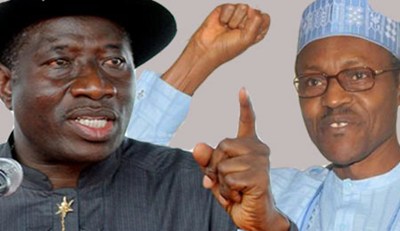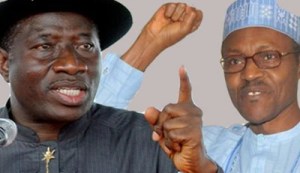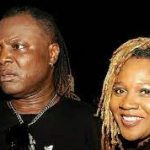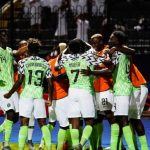Who Is Afraid Of A Presidential Debate?
Articles/Opinion, Latest Headlines Friday, December 26th, 2014
By Adewale Kupoluyi – As the presidential election contest becomes fiercer, the candidates are busy perfecting their winning strategies to enable them occupy the Aso Rock Villa by next year. From all indications, the major contestants in the race are certainly those of the Peoples Democratic Party (PDP) and the incumbent President, Dr. Goodluck Jonathan, and the All Progressives Congress’ Gen. Muhammadu Buhari (retd). It would be recalled that the Nigerian Senate had earlier in the year, voted against a bill seeking to empower the Independent National Electoral Commission (INEC) to conduct presidential debates in the 2015 general elections. The clause was contained in a bill seeking to alter the Electoral Act that was proposed by INEC, as part of legislations required for the smooth conduct of elections. The bill requires the concurrence of the House of Representatives before it is eventually forwarded to the president for his assent.
The overall interest of Nigerians should be paramount at all times, therefore, what should constitute a vital component of the electoral process is a virile presidential debate that would enable eligible voters have a clear picture of what the candidates and their parties have to offer them. This became imperative going by the past experiences and the seemingly crisis of leadership and trust between leaders and followers in the nation. Over the years, the country has suffered so much in the hands of their leaders that the commonly used phrase of dividends of democracy has always been a mirage. Due to bad governance, life has been very difficult for the people as basic social necessities are not being provided. It will be a great disservice if they are still made to suffer in the next dispensation when denied the type of leadership desired by them.
This time around, we should avoid voting for the wrong candidates just on sentimental, parochial or mundane basis. There should be a radical departure from the past as only credible, well-prepared and focused should get the people’s mandate. No doubt, we should ensure that we get certain things right before heading for the polls come February.
To begin with, the candidates should tell us how they will end the endemic security situation ravaging the land. For many months now, the deadly attacks by the Boko Haram sect have continued to wreck monumental havoc by killing innocent people and destroying valuables without much resistance by government forces. It appears that more result-oriented approaches should really be deployed in ending the menace that has perpetually become a nightmare. Therefore, our law enforcement agencies need a total turn-around if we are to win the battle against terrorism. The epileptic power supply has been the lot of the nation over the years. Failed promises and deregulation policies have been a recurrent decimal in this critical sector. The country has not witnessed much development due to the power crisis that has crippled many industries resulting into low capacity utilisation and capital flight. Many people, who cannot afford to buy generators, are currently celebrating the Christmas and New Year festivities in total darkness across the nation. Nigerians would want an end to this miserable life. The unemployment situation has reached an alarming rate that should give any serious contestant headache. Most employment programmes put in place by the successive governments have had very little impact on the economy because those close to the corridors of power are oftentimes the only beneficiaries. Voters will be interested in how this monster will be tamed. Specific packages that should really reduce poverty, restore stability and inject life into our educational system, health and aviation sectors, should be unfolded.
The people are yearning to see an end to perennial fuel scarcity and collapse of physical infrastructure such as the railways and roads. The turning around of the bad shape of our economy should also be uppermost to the presidential hopefuls. The declining accruals from the nation’s oil proceeds is a timely warning for the incoming government to decisively diversify the monolithic economy that has put so much dependence on oil at the neglect of other viable money-spinning options like agriculture, mining and tourism. The high prevalence of corruption is antithetical to the development of any nation. This does not only render public institutions ineffective, it breeds impunity and lawlessness. How the alarming rate of corruption can be drastically reduced will surely be of interest to Nigerian voters this time around. It is not new to many that the image of the country outside is a source of utmost concern. Whenever the name, Nigeria, is mentioned on the international scene, the reaction that one gets in often negative and embarrassing. This is more prevalent at embassies, airports and other global gatherings. I’ve been a victim of this stigma on several occasions, in many countries and fora. Hence, the people are keen in knowing how their next president will revamp their country’s battered image abroad.
Many senior citizens and pensioners die daily because of neglect by the government. Their entitlements are rarely paid as at when due. Is this what they deserve after toiling for the nation for several years? And when would they get the succour? Nigerians need answers. Getting justice has become a mirage in this country. Our entire legal system appears to offer no hope for the ordinary man. We are regularly confronted with the miscarriage of justice. The presidential aspirants will have to work hard to convince the electorate that they are capable of cleaning the Augean Stable. This fire gutting the judiciary and temple of justice may soon consume all if not urgently put out. Nigerians would seriously be interested in knowing this ‘fire-fighting’ techniques. There are certainly more burning issues requiring urgent attention but cannot be fully exhausted in this piece. In the past, the lukewarm attitude of some Nigerian politicians has not been encouraging. Such people should be voted out if they refuse to turn a new leaf.
Therefore, the need for this debate can never be wished away. We recall too that during presidential elections in the United States of America – a country we have chosen to adopt its political system – it is customary for the main candidates to engage in a debate, which is usually held late in the election cycle when the political parties would have nominated their candidates. The candidates are allowed to interact before an audience by answering serious questions and unfolding their agenda for elections. Such debates are broadcast live on television, radio and the Internet. For instance, the US 1960 election drew over 66 million viewers out of a population of 179 million while that of 1980 debates drew 80 million viewers out of a 226 million people. The year 1992 featured the first debate involving both major-party candidates and a third-party candidate, Ross Perot, running against President George W. Bush and the Democrat nominee, Governor Bill Clinton. Recent debates have equally shown the impact of such during presidential polls in the US and other countries. The performance of the candidates at the debates eventually led to who won and lost out based on the objective discussion of national issues. That is why the position of the National Assembly on the presidential debate may not be in the best interest of the nation.
While gearing up for this exercise, to be held preferably by mid-January, its organisation and sponsorship should be purely by non-state actors while the people should be allowed to freely contribute to the debate. The panelists, participants and moderators should comprise the civil societies, the Nigerian Bar Association (NBA), Nigeria Union of Journalists (NUJ), Nigerian Guild of Editors (NGE), Nigeria Labour Congress (NLC), international community, professional bodies, political parties, youths, women group, among others. There should be room for phone-in to truly allow for a robust discourse. When this happens, the voters would certainly be better equipped to make a well informed choice on their preferred candidate for the presidential election – after an issue-based interaction premised on sound argument – not on sentimental reasons as obtainable in the time past.
Kupoluyi writes from the Federal University of Agriculture, Abeokuta, vide, adewalekupoluyi@yahoo.co.uk, Twitter, @AdewaleKupoluyi
Related Posts
Short URL: https://www.africanexaminer.com/?p=21046























